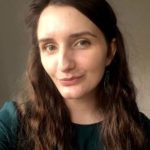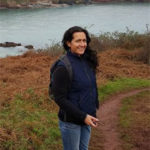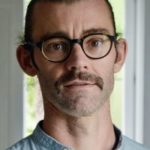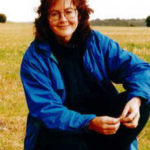The project brings together an interdisciplinary team rich with experience and expertise, from across the Universities of Reading, Exeter and Sheffield.

Dr David Rose (Reading) is the Principal Investigator. David is the Elizabeth Creak Associate Professor of Agricultural Innovation and Extension at the University of Reading. He holds a Bachelors (first-class) in Geography, a Masters in Geographical Research and a PhD (Geography) all from the University of Cambridge. His academic interests centre around the social impacts of agriculture 4.0, including extension, behaviour change, user-centred design and the ethics of new technologies. He is a Fellow of the Higher Education Academy and co-Director of the Centre for Effective Innovation in Agriculture.

Prof Matt Lobley (Exeter) is Co-Investigator. Matt is Co-Director of the Centre for Rural Policy Research at the University of Exeter. Over the last 30 years much of his research has focused on understanding influences on, and impacts of, family farm decision making and behaviour. This includes understanding policy influences such as CAP reform and agri-environmental schemes. One of his main areas of research expertise is in the farm family life-cycle and succession issues. Matt is also involved in a number of research projects on farmer health and well-being, including leading the largest ever survey of the well-being of the agricultural communities of England and Wales (funded by RABI).

Dr Ruth Little (Sheffield) is Co-Investigator. Since 2012, Ruth has divided her time between the University of Sheffield and the Department for Environment, Food and Rural Affairs (Defra), first working with the Animal and Plant Health Evidence and Analysis (APHEA) team and latterly with the Environmental Land Management. Her research has included a focus on animal and plant health management, policy evaluation and piloting innovative approaches to increase involvement of stakeholders and the wider public in decision-making on policies related to agriculture and the environment.
 Dr Faye Shortland (Reading) is a Postdoctoral Researcher. Faye is a human geographer whose AHRC-funded PhD brought together geographical, anthropological, and heritage theories and methods to gain a deeper understanding of the management of the Lake District National Park and World Heritage Site. She worked with both the Lake District National Park Partnership and the farming community. Her academic interests include the management of cultural landscapes, rewilding, farmer decision-making, and farmers’ mental health.
Dr Faye Shortland (Reading) is a Postdoctoral Researcher. Faye is a human geographer whose AHRC-funded PhD brought together geographical, anthropological, and heritage theories and methods to gain a deeper understanding of the management of the Lake District National Park and World Heritage Site. She worked with both the Lake District National Park Partnership and the farming community. Her academic interests include the management of cultural landscapes, rewilding, farmer decision-making, and farmers’ mental health.

Dr Caroline Nye (Exeter) is a Postdoctoral Researcher. Caroline is a Research Fellow and social scientist at the CRPR, University of Exeter. Her research interests include agricultural labour, farmer collaboration and landscape-scale farmer groups (Farmer Clusters), livestock marts and social responsibility, and the social drivers of antimicrobial resistance in rural communities. Caroline is also interested in farmer health and wellbeing and the social issues surrounding uptake of technologies in agriculture.

Dr Paul Hurley is a Postdoctoral Researcher. Paul is a cultural geographer experienced in combining conceptual and empirical enquiry through qualitative, participatory and creative methods. He is interested in more-than-human worlds in the contexts of ecology, community and ethics. Alongside work at Reading, Paul is involved in research projects about so-called ‘harder-to-reach’ farmers, about the Christian ethics of farmed animal welfare, about human-viral interactions and imaginaries, and about the politics of human and nonhuman migration.

Dr Jilly Hall (Supporting the People who Support Nature) is a Research Consultant. Jilly has been involved in farming from an early age. Her interests and career have focussed on the countryside – particularly the management of land – and the circumstances, interests and behaviours of people who farm. Building on a degree in agriculture, a Masters in soil science and extensive experience in the sector, Jilly’s PhD research revealed the importance of farmers’ social networks as a key factor affecting how they manage their land.
